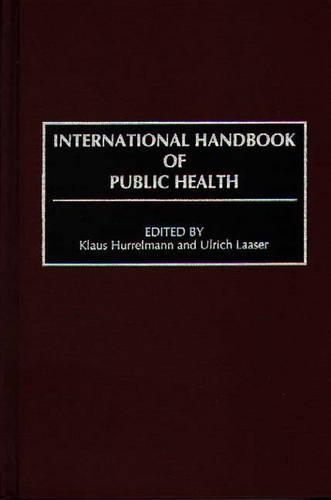
International Handbook of Public Health
(Hardback)
Publishing Details
International Handbook of Public Health
By (Author) Klaus Hurrelmann
By (author) Ulrich Laaser
Bloomsbury Publishing PLC
Greenwood Press
24th September 1996
United States
Classifications
Tertiary Education
Non Fiction
362.1
Physical Properties
Hardback
492
Description
At the end of the 20th century, many of the major health problems facing highly industrialized nations stem from advanced technology, a richer diet, and lengthened life span. The scope of public health has greatly expanded. While health hazards to the public have increased, the strategies available to remedy them have grown commensurably. Public health has borrowed and adapted knowledge from the biological, medical, behavioural and social sciences, and has been quick to recognise the potential of new fields such as the management sciences for safeguarding the health of the community. Through chapters written by expert contributors, this reference provides a synopsis of the state of the development of public health in 20 countries from around the world. These countries vary considerably in national policies for organizing health services. Some are heavily industrialized, such as Germany and the United States, while others, such as Tanzania and Thailand, are less developed. Each chapter is devoted to a particular country, with chapters discussing similar issues in order to foster comparisons. Chapters discuss the overall status of public health from practice to research and teaching, and take into account the resulting health effects and the quality and efficiency of the delivery systems. Chapters include extensive references, and an appendix lists organizations in each country.
Author Bio
KLAUS HURRELMANN is Professor of Sociology and Health Sciences, Director of the Research Center for Prevention and Intervention, and Dean of the School of Public Health at the University of Bielefeld. He has won several Senior Science awards from the German Research Association, and his numerous publications include the International Handbook of Adolescence (Greenwood, 1994). ULRICH LAASER is Professor of Social Medicine and Epidemiology at the School of Public Health at the University of Bielefeld. He is also Director of the Institute of Population Research and Social Policy in Bielefeld. From 1993 to 1995 he was President of the Association of Schools of Public Health in the European Region.
